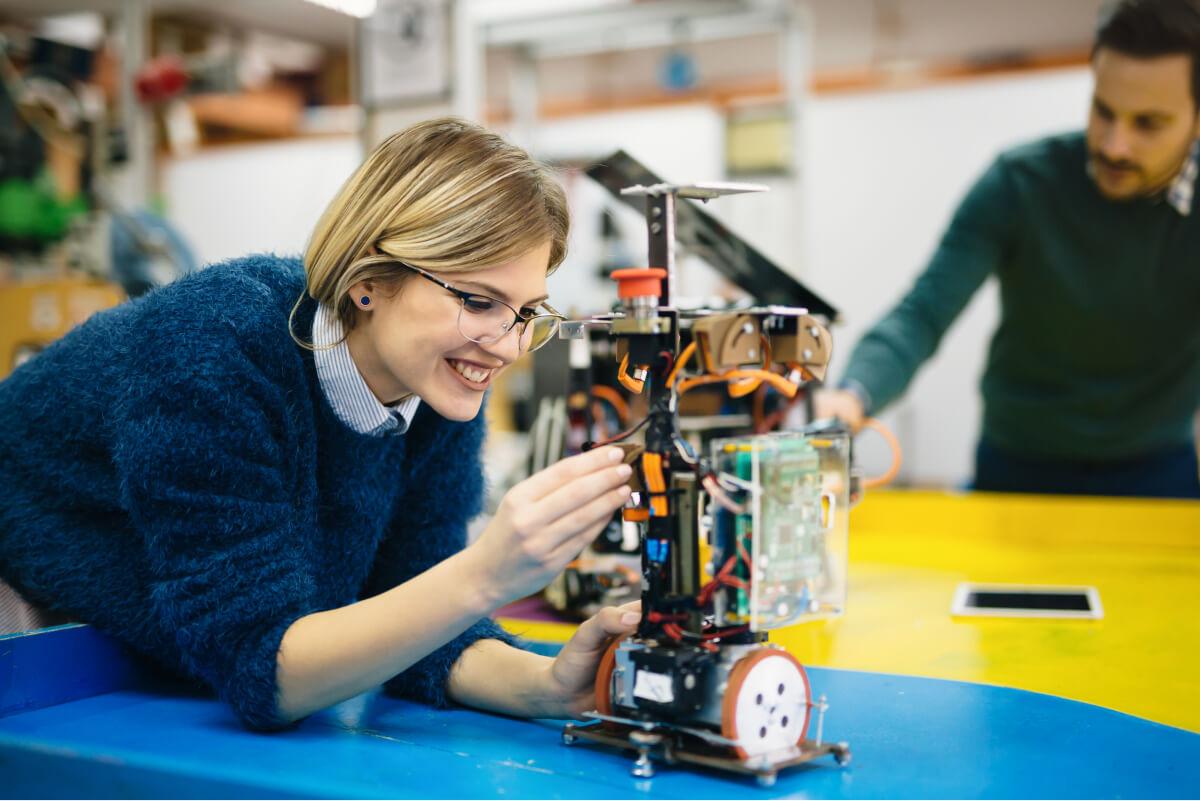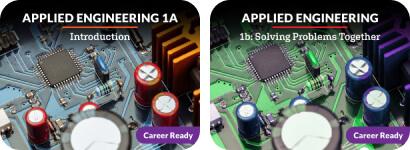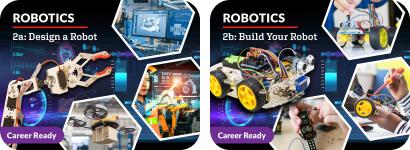Robotics Specialists
Average Salary $61,876
Robotics is a branch of mechanical engineering, electrical engineering and computer science that deals with the design, construction, operation, and application of robots, as well as computer systems for their control, sensory feedback, and information processing.
Robots are machines that are all around us and touch almost every industry sector from helping doctors in surgeries to keeping our houses clean. Working in the field of robotics will guarantee a job that is in high demand and can have a huge impact on society.
Students enrolled in this career track will gain the necessary skills for a Robotics Specialist and will need the following competencies:
- Expertise in Robotics programming languages
- Knowledge of mechanical and electrical components
- Experience with Robotics design and prototyping
- Strong problem-solving and analytical skills
- Ability to work independently and in a team environment
- Excellent verbal and written communication skills
- Ability to handle multiple tasks simultaneously
- Passion for learning and exploring new technologies
Have Questions?
Talk to an Admissions Advisor

Section One

In this section, students will explore how technology has changed the world around them by pursuing technological solutions to everyday problems. First students will learn how electricity, electronic systems, magnets, and circuits work, approaching their learning from scientific and engineering perspectives. Then students will apply this foundational knowledge to explore how various inventions and solutions such as AI, robotics, and other technologies have advanced all aspects of the world around us.
Section Two

In this section, students will learn the basics of building robots and the careers found in this high-demand field. First students will explore the physics, mechanics, motion, and the engineering design and construction aspects used to develop robots including the various ways models are created. Then students apply this foundational knowledge to positively impact the world around them. Students will learn to create logic and memory, quantify the physical world through variables, and have an impact through tools while discovering employing the best tools and materials for the job.
Section Three

In this section, students will take their understanding of robotics and put their learning into action. First, students will identify a problem and use the skills they have learned to apply principles of engineering and robotics to design an innovative robot to solve the problem. Then, students will build on their design, adding more complexity to their creations to make them more efficient, capable, and better able to handle advanced tasks. After a real-world safety review, a deeper dive into advanced applications and systems, and improving prototypes, students will finalize and launch a robot.
Preparation for the following Industry Certification:
- REC Foundations Certificate
Section Four

In this final section of their Career Ready Academy, students will gain a better understanding of the workplace environment – how to communicate with others, manage their time, work with a team, take initiative, set goals, problem-solve, and prepare for their first professional job experience. After they complete this course and their academy courses, students are ready to apply for an internship experience in a variety of technical fields that actively seek engineering and robotics support roles.